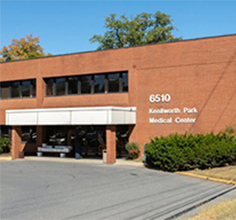
Weight management is not a one-size-fits-all endeavor. Each person's body, lifestyle, and goals require a unique, tailored approach. Whether you're aiming to lose weight, gain weight, or maintain your current weight, understanding and implementing the right strategies can make all the difference.
In this brief article brough to you by the primary care doctors at Southern Maryland Medical Group, we share our two cents on practical and sustainable strategies for weight management that cater to individual needs.
If you would rather consult with a licensed primary care physician directly, then call Southern Maryland Medical Group to speak with a member of our team today.
Weight loss is not about starving yourself with three-digit caloric intake per day. Instead of restrictive diets, focus on a balanced intake of macronutrients—proteins, fats, and carbohydrates. Incorporate plenty of vegetables, fruits, lean proteins, and whole grains into your meals. Aim for nutrient-dense foods that keep you full longer and provide essential vitamins and minerals.
Still, it’s not just what you eat, but how much you eat. Practicing portion control can help you enjoy your favorite foods without overindulging. Using smaller plates, mindfully reading serving sizes, and being cognizant of hunger and fullness cues can help manage portions effectively.
It’s also about how you eat. Pay attention to what you are eating and how it makes you feel. Avoid distractions like TV or smartphones during meals. Eating slowly and savoring each bite can help you recognize when you’re truly full and prevent overeating.
On the other side of this equation is burning calories. Incorporate both aerobic exercises and strength training into your routine. Exercise not only burns calories but also boosts metabolism and enhances muscle mass, which can help with long-term weight loss.
Let’s get the obvious out of the way: to gain weight, you need to consume more calories than you burn – but focus on eating healthy, nutrient-dense foods rather than resorting to junk food. Nuts, seeds, avocados, whole grains, and lean proteins are excellent choices.
Eating more frequently can help increase your overall calorie intake. Try to have three main meals and two to three snacks throughout the day. Include a mix of proteins, fats, and carbohydrates in each meal.
You’ve got to pack those calories into your muscles! Regular strength training exercises will build muscle mass. Weight lifting, resistance band exercises, and body-weight exercises like push-ups and squats can help. Ensure you’re progressively challenging your muscles to promote growth.
To make sure you keep those gains, and grow them, you’ve got to optimize your protein intake. Aim to include a source of protein in every meal and snack. Good sources include lean meats, dairy products, eggs, legumes, and protein shakes.
Finally, a note on fat. Fats are very important – but in moderation. Incorporate healthy fats into your diet. Fats are calorie-dense and can help you reach a caloric surplus. Include sources like olive oil, nuts, seeds, and fatty fish in your diet.
Congratulations on hitting your weight goal! It takes hard work, dedication, and persistence. If it’s genetics, then great – but don’t over-depend on it. Stick to a consistent eating schedule and maintain a regular exercise routine that includes both cardiovascular and strength-training exercises.
Keep an eye on your weight and other health metrics like body measurements, energy levels, and how your clothes fit. This helps you catch any unwanted changes early and adjust your habits accordingly.
Most importantly, allow yourself to enjoy treats and indulgent foods occasionally. The key is moderation. A flexible approach helps maintain a healthy relationship with food and prevents feelings of deprivation.
Ultimately, the best weight management strategy is one that fits seamlessly into your lifestyle and aligns with your personal goals. Consulting with a dependable primary care physician is the springboard to greater heights in your weight management journey. Call Southern Maryland Medical Group to schedule an appointment.
And remember: weight management is a journey, not a destination. It’s about finding a sustainable and enjoyable balance that promotes your overall health and well-being. Let’s navigate this journey together.
Southern Maryland Medical Group has 3 convenient locations to provide professional medical care services in the Southern Maryland area. Call or schedule an appointment with one of our locations to get medical care help.

5801 Allentown Road, Suite 400 Camp Spring, MD 20746
Phone: 301-868- 0150
Billing Inquiries: 301-552-1270
Fax: 301-868-0243

7500 Greenway Center, Dr #1200 Greenbelt, MD 20770
Phone: 301-486-7580
Billing Inquiries: 301-552-1270
Fax: 301-486-7581

6510 Kenilworth Ave, Ste 1400, Riverdale MD 20737
Phone: 301-618-0771
Billing Inquiries: 301-552-1270
Fax: 301-618-0772